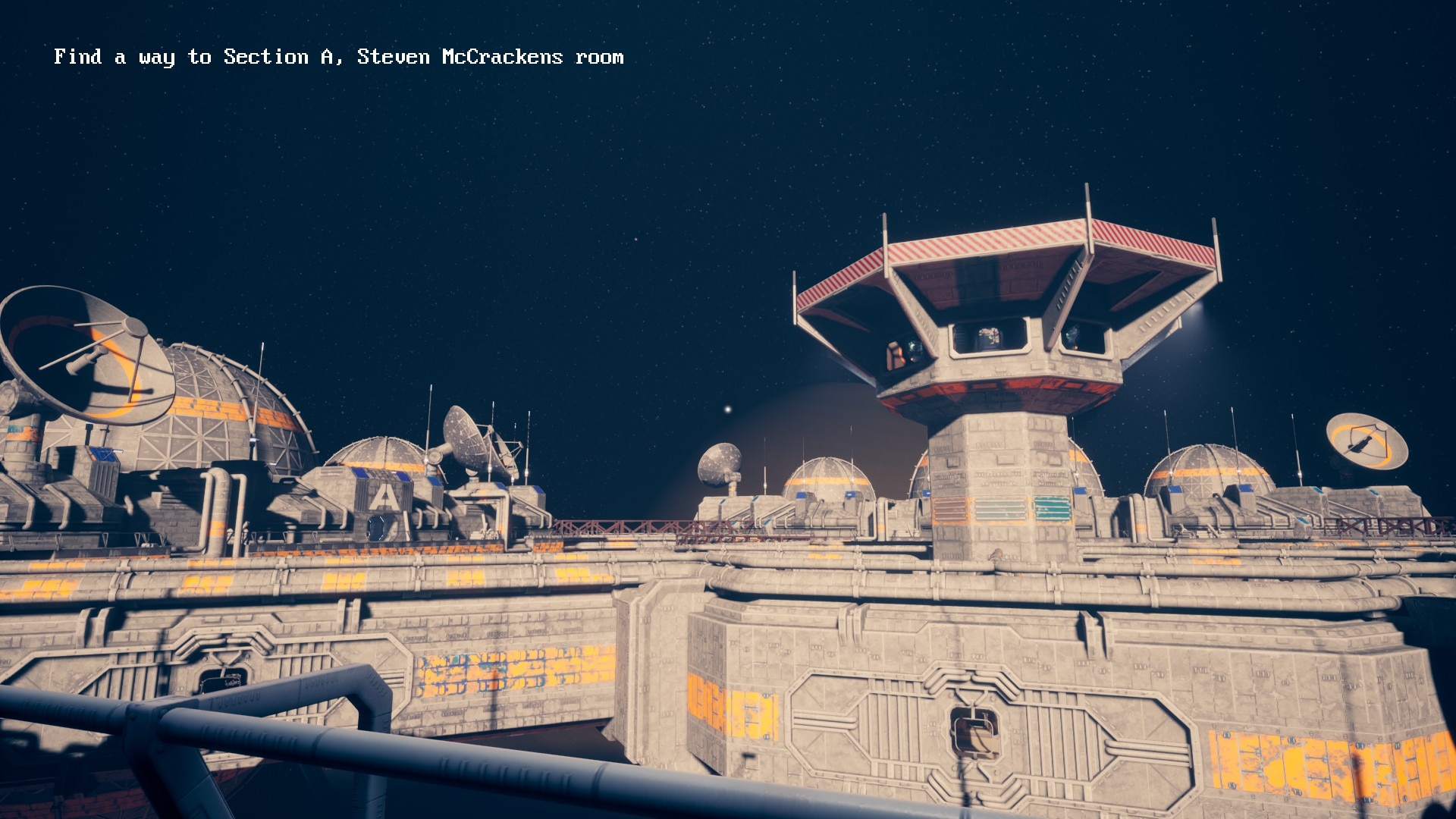
Titan Station
Titan Station is a beautiful sci-fi adventure game that plays like a walking simulator, one that is heavy in puzzles.
You take the role of David Miller, who grudgingly accepts a job in space with the promise of a substantial monetary reward at the end of the 5-years contract, which would allow him to clear the financial debt he’s in. David is expected to work as a system administrator on a refueling station linked to Titan, one of Saturn’s moons. Upon arrival though, he finds the station completely devoid of people, and several of the systems disconnected from the network.

While Titan Station isn’t a horror game, the empty corridors undeniably generate an eerie atmosphere. As David starts exploring the station, guided through a walkie-talkie by someone called Jack who gives him specific indications about how to reconnect the computers to the network, he stumbles upon some suspicious message exchanges between the team members, which according to Jack are currently not present on the station because of work. Even though Jack assures him that there’s nothing to be worried about, David starts having real doubts about what actually happened on the station to make people disappear all of a sudden, and whether Jack is hiding something. From there on, the plot deepens with every piece of message or every note left behind by the crew that David discovers while trying to complete the tasks given by Jack.

The storytelling is great and the game has an interesting way of completely sucking you into its mysterious plot, keeping you hooked on from the beginning until the end, always making you wonder who to trust, what is real and what is not. Without spoiling the story any further, I can only say that it has several layers, and as soon as you think you understand what actually happened on the station, a brand new layer surfaces, turning everything you had believed so far upside down. It’s a game that will make you always question what you know, or even who David actually is and will certainly make you rethink its story even after its very end.

Titan Station is a narrative-driven game, and the dialogues (all having very good voice-overs) between David and the other characters that he interacts with through walkie-talkies usually have multiple choices. Unfortunately, these do not have any impact on the story: even if you choose to lie or to be honest, the outcome will be the same, but you’ll get to see different replies from that character. The game is very linear and the progress is guided step by step through objectives that are always visible on the top left of the screen. There’s no way to fail if you pick one choice or another, and the 12 achievements that the game has are also non-missable (all of them are story-related).

The puzzles will either make you find a certain note that contains a password to unlock a terminal, or will have to create block connections between tiles of the same color. From the latter category, the earlier puzzles are pretty easy and straightforward, but the ones in the second part of the game will also require a basic knowledge of color theory, since they will have you build the block sequences so that certain color combinations are reached. None of these puzzles are too complicated though, and they can usually be solved in a matter of seconds / couple of minutes.

Titan Station’s strength lies in its captivating storytelling, the relaxed and fun gameplay and the beautiful visual style. It’s not a horror game, but it does imbue you with a strong spooky feeling (it does have 1-2 potential jump scares, but they’re very mild) and some aspects of the plot remain mysterious even after the 3h-5h that the game lasts. In my book, it’s a much better walking simulator than most of the ones I’ve tried on Steam so far, one I greatly enjoyed experiencing.